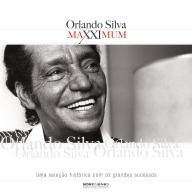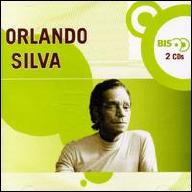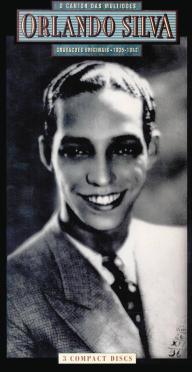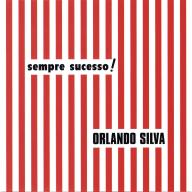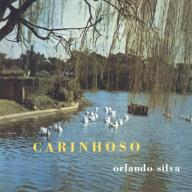From a poor family, Silva lost his father at three. Soon he was engaged in several different small jobs for a living. In 1934 he was invited by Francisco Alves to sing in his program at the Rádio Cajuti. In the same year he debuted in the radio under the pseudonym of Orlando Navarro and recorded his first album, through Columbia, with the samba Olha a Baiana (Kid Pepe/Germano Augusto) and the march Ondas Curtas (Kid Pepe/Zeca Ivo). In 1936, Silva participated in the inauguration of the Rádio Nacional, interpreting Caprichos do Destino (Pedro Caetano/Claudionor Cruz), the song that would become a hit in his rendition. Silva was the first to host an exclusive show in that broadcasting station, and it was a massive success. In the same year, he had another hit with Dama do Cabaré (Noel Rosa), followed by Lábios que Beijei (J. Cascata/Leonel Azevedo), Carinhoso (he was the launcher of this all-time classic by Pixinguinha/João de Barro), and Rosa (Pixinguinha/Otávio de Souza) in 1937. In 1938 he appeared in the film #Banana da Terra, interpreting A Jardineira (Benedito Lacerda/Humberto Porto), which was a huge hit in the Carnival of 1939. Another success of his was Página de Dor (Índio/Pixinguinha), also recorded in 1938. The samba A Primeira Vez (Bide/Marçal) was recorded by Silva in 1940 and was one of the several songs (like Preconceito by Wilson Batista/Marino Pinto, Curare by Bororó, and Aos Pés da Cruz by Marino Pinto/Zé da Zilda) turned into classics by him that were re-recorded by his disciple João Gilberto. Four years later, Silva abandoned the live shows, dedicating himself to the radio, cinema, and recording studios. He continued to enjoy remarkable popularity until the end, having retired just three years before his demise. His everlasting influence, though, is present and clearly audible in Brazilian music -- one could say that it is immortal. ~ Alvaro Neder, Rovi
Orlando Silva
October 3, 1915 - August 7, 1978 (age 62)
Biography
Orlando Silva is regarded by many as the best Brazilian singer of all times. Certainly he was fundamental in the process of modernization of Brazilian popular music, through his subtle rhythmic facility allied to an intelligent interpretation and a flexible phrasing. Before Silva, Brazilian music was dominated by potent voices like Francisco Alves', which were very much indebted to operatic performance. It was Silva who, inspired by Sílvio Caldas' delicate style (and also by Alves' powerful vocal gift), introduced a new way of singing, in which his perfect diction, uncanny voice control, precise intonation, and creative use of rhythm produced a vigorous school that ultimately influenced João Gilberto, the whole bossa nova, the tropicália, and the MPB styles. Orlando Silva was also the first idol of the masses in Brazil. In his prime -- from the mid-'30s to the mid-'40s -- he was the most popular Brazilian artist ever. His live performances used to attract so many people that he soon became known as "O Ídolo das Multidões" (The Idol of the Multitudes). The adoration of the crowds reached extremes that would only be repeated, several years later, around the Frank Sinatra phenomenon. After 1945, though, Silva's voice was clearly signaling that years of heavy substance abuse were charging their price; he lost the clarity of his high-range, the cleanness of his timbre. He entered a period of obscurity, but he somehow managed to carry on with his wonderful interpretations even if his instrument was not the same anymore. Silva continued to sing professionally until 1975, when he recorded his last LP, Hoje (RCA Victor), completing 40 years of career.
Top Tracks
Albums
Videos
Close


